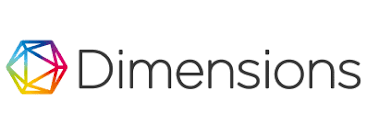Hubungan Fanatisme terhadap tindakan Agresi Verbal Fandom Kpop di Twitter
Abstract
Full Text:
PDF (Bahasa Indonesia)References
Alfina, F. (2015). Fanatisme penggemar korean idol group pelaku agresi verbal di media sosial. (Doctoral dissertation, Universitas Pendidikan Indonesia).
Amarilisya, A. (2021, September 4). 6 Aktor Korea ini Jadi Brand Ambassador Produk Indonesia, Ada Song Joong-ki. Bisnis.com. https://lifestyle.bisnis.com/read/20210904/254/1437970/6-aktorkorea-ini-jadi-brand-ambassador-produk-indonesia-ada-song-joong-ki
Bronner, G. (2016). La pensée extrême. Comment des hommes ordinaires deviennent des fanatiques. Presses universitaires de France.
Buss, A.H. (1971). Aggression pays. In J.L. Singer (Ed.), The control of aggression and violence: Cognitive and physiological factors (pp. 7-18). New York: Academic Press.
Buss, A. H., & Perry, M. (1992). The Aggression Questionnaire. Journal of Personality and Social Psychology, 63(3), 452–459. https://doi.org/10.1037/0022-3514.63.3.452.
Cahyo, H. D., Rini, R. A. R. P., & Pratitis, N. (2020). Fanatisme dan kecenderungan agresi verbal penggemar k-pop. Jurnal Publikasi, 1-7.
Creswell, J. W. (2014). Research Design: Qualitative, Quantitative and Mixed Methods Approaches (4th ed.). Thousand Oaks, CA: Sage.
Ekman, P., & Friesen, W. (1969). The repertoire of nonverbal behavior: Categories, origins, usage, and coding. Semiotica, 1, 49-98.
Eliani, J., Yuniardi, M. S., & Masturah, A. N. (2018). Fanatisme dan perilaku agresif verbal di media sosial pada penggemar idola K-Pop. Psikohumaniora: Jurnal penelitian psikologi, 3(1), 59-72.
Fuschillo, G. (2020). Fans, Fandoms, or Fanaticism?. Journal of Consumer Culture, 20, 347–365. https://doi.org/10.1177/1469540518773822.
Goddard, H. (2001). Civil Religion. New York: Cambridge University Press.
Hamilton, M. A. (2012). Verbal aggression: Understanding the psychological antecedents and social consequences. Journal of Language and Social Psychology, 31(1), 5-12.
Hollows, J. (2010). Feminisme, Feminitas dan Budaya Populer. Yogyakarta: Jalasutra.
Infante, D.A. (in press). Aggressiveness and interpersonal communication. In J.C. McCroskey & J.A. Daly (Eds.), Personality and interpersonal communication. Beverly Hills, CA: Sage Publications.
Infante, D.A., Trebing, J.D., Shepherd, P.E., & Seeds, D.E. (1984). The relationship of argumentativeness to verbal aggression. Southern Speech Communication Journal, 50, 67-77.
Infante, D. A., & Wigley, C. J. (1986). Verbal aggressiveness: An interpersonal model and measure. Communication Monographs, 53(1), 61–69. https://doi.org/10.1080/03637758609376126.
Jenkins, H. (1992). (1992a) Textual Poachers. Television Fans and Participatory Culture. New York: Routledge.
Jenkins, H., Itō, M., & Boyd, Danah. (2015). Participatory culture in a networked era : a conversation on youth, learning, commerce, and politics.
KBS editor. (2011). 3,3 juta penggemar K-Pop Hallyu di seluruh penjuru dunia. http://world.kbs.co.kr/ indonesian/ archive /program/ news_issue.htm?no=22969.
Kim, Y. (2013). The Korean Wave. Korea's Changing Roles, 283-303.
Larasati, D. (2018). Pengaruh dan Eksistensi Hallyu (Korean Wave) versus Westernisasi di Indonesia. Jurnal Hubungan Internasional, 12.
Littlejohn, S. W., & Karen, A. (2009). Teori Komunikasi (edisi 9). Jakarta: Salemba Humanika.
Megarry, J. (2014). Online incivility or sexual harassment? Conceptualising women’s experiences in the digital age. Women’s Studies International Forum, 47, 46–55. https://doi.org/10.1016/j.wsif.2014.07.012.
Nugraini, E. D. (2016). Fanatisme remaja terhadap musik populer korea dalam perspektif psikologi sufistik (Studi kasus terhadap EXO-L)(skripsi). Fakultas Ushuluddin UIN Walisongo. Semarang.
Nursanti, M. I. (2013). ANALISIS DESKRIPTIF PENGGEMAR K-POP SEBAGAI AUDIENS MEDIA DALAM MENGONSUMSI DAN MEMAKNAI TEKS BUDAYA.
Oh, I., & Lee, H. J. (2014). K-pop in Korea: How the pop music industry is changing a post-developmental society. Cross-currents: East Asian history and culture review, 3(1), 72-93.
Putri, C. N. (2022, Januari 9). Selain NCT Dream, Ini Artis Korea yang Jadi Brand Ambassador Brand Kecantikan Lokal. KOMPAS.com. https://www.kompas.com/parapuan/read/533086135/selain-nct-dream-ini-artis-koreayang-jadi-brand-ambassador-brand-kecantikan-lokal
Sari, P. R. (2021, February 19). Twitter Ungkap Indonesia Ada di Posisi Pertama Twit Kpop Terbanyak di Dunia. KOMPAS.Com. https://www.kompas.com/hype/read/2021/02/04/101053166/twitter-ungkap-indonesia-ada-di-posisi-pertama-twit-kpop-terbanyak-di-dunia.
Sinnenberg, L., Buttenheim, A. M., Padrez, K., Mancheno, C., Ungar, L., & Merchant, R. M. (2017). Twitter as a tool for health research: a systematic review. American journal of public health, 107(1), e1-e8.
Sugiyono. (2016). Metode Penelitian Kuantitatif, Kualitatif dan R&D. Bandung: PT Alfabet.
Tirtawijaya, H. (2022). Pengaruh Fanatisme terhadap Tingkat Agresi Verbal Penggemar K-pop dalam Media Sosial (Doctoral dissertation, Universitas Airlangga).
Tirtawijaya, H., & Alfian, I. (2022). Pengaruh Fanatisme terhadap Tingkat Agresi Verbal Penggemar K-pop dalam Media Sosial. Buletin Riset Psikologi dan Kesehatan Mental, 11.
Wu, S., Hofman, J. M., Mason, W. A., & Watts, D. J. (2011). Who says what to whom on twitter. Proceedings of the 20th International Conference on World Wide Web - WWW ’11. doi:10.1145/1963405.1963504.
Zulfaa, I. A. (2020). Fanatisme dan agresi Verbal Di Media Sosial Twitter Pada Penggemar K-Pop (Doctoral dissertation, Universitas Tarumanagara).
DOI: http://dx.doi.org/10.24014/jp.v20i1.20393
Refbacks
- There are currently no refbacks.
REDAKSI : JURNAL PSIKOLOGI
Jl. H.R. Soebrantas Km. 15.5 No. 155,
Gedung Fakultas Psikologi UIN Sultan Syarif Kasim Riau
Kel. Tuahmadani, Kec. Tampan, Pekanbaru – Riau 28293
1.jpg)
.jpg)














